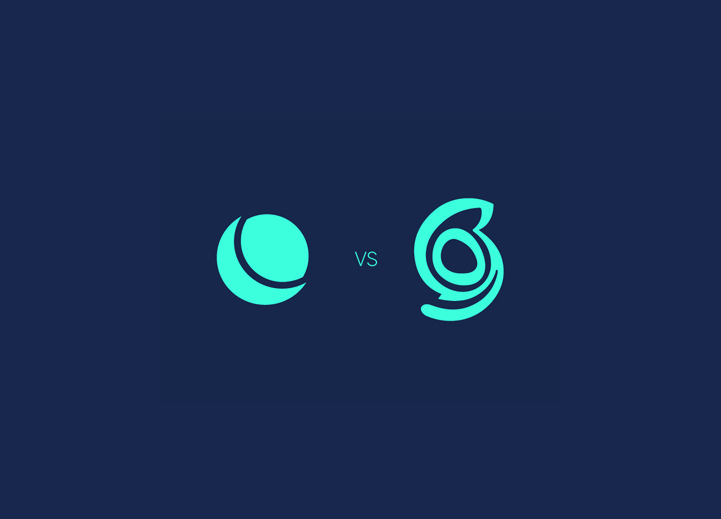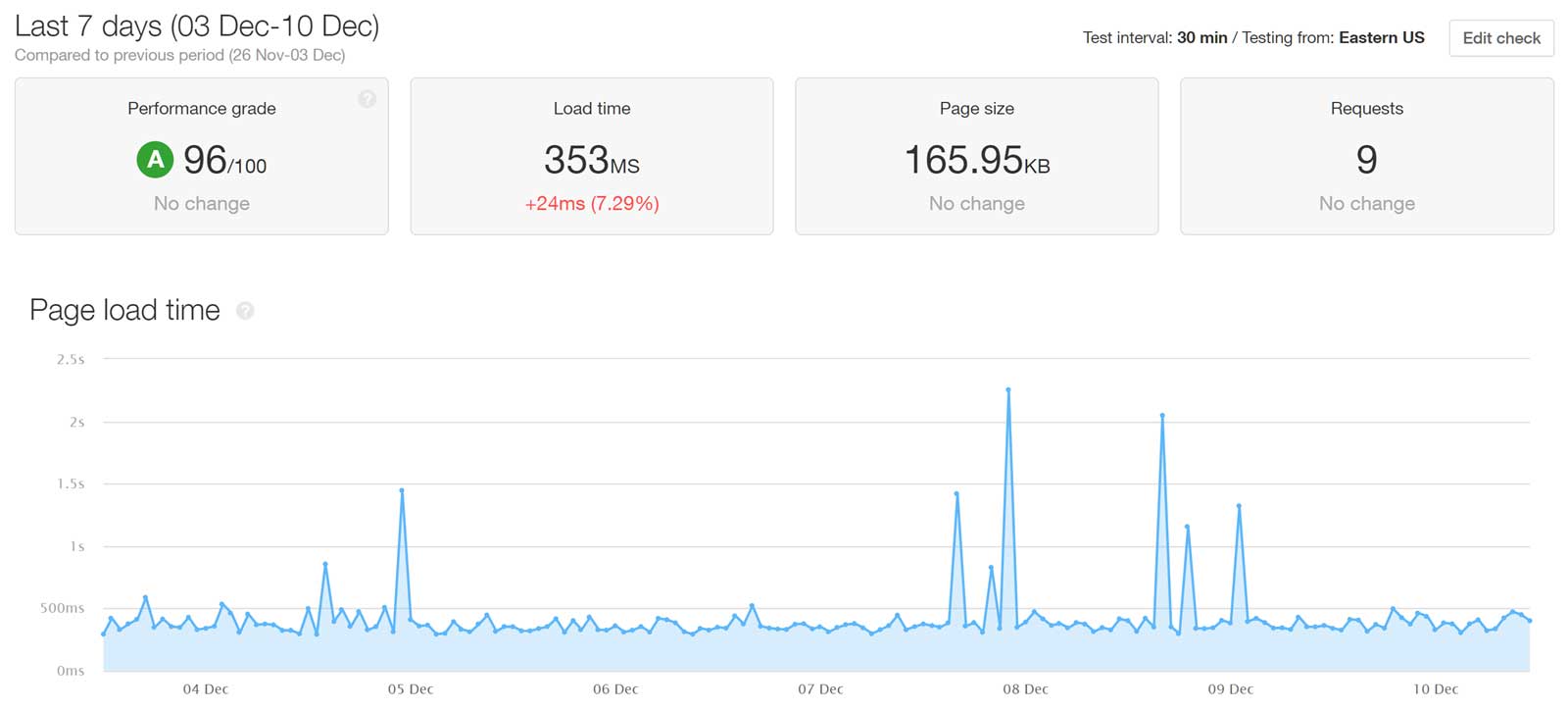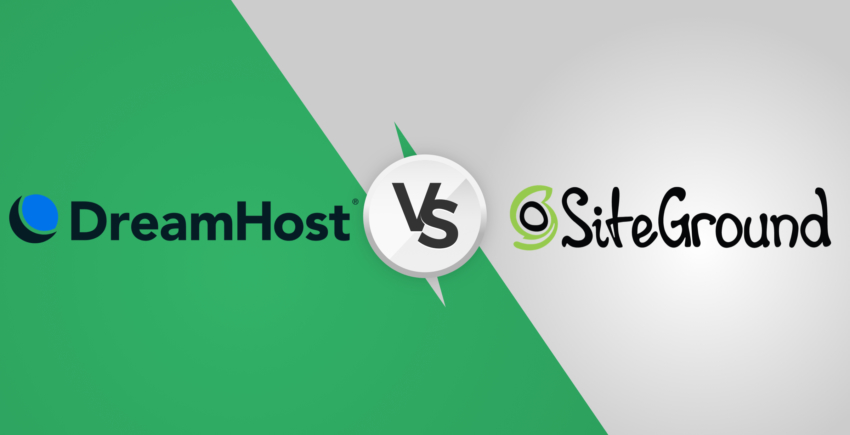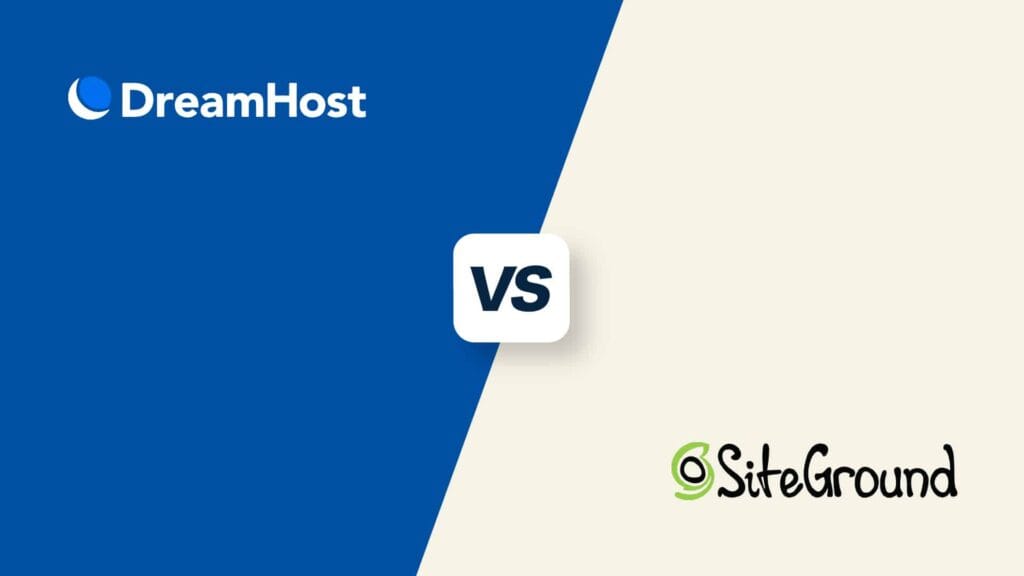Choosing a web hosting provider can be tough. Dreamhost and Siteground are two popular options.
Both offer unique features and benefits. Comparing Dreamhost and Siteground helps you find the best fit for your needs. Web hosting is crucial for your website’s performance and success. This guide will explore key differences between Dreamhost and Siteground. We’ll look at pricing, features, and customer support.
Making an informed decision ensures your website runs smoothly. Stay tuned to discover which provider suits you better.
Click Here To Get Promo Code & Full Dreamhost Review With Extra Bonuses

Credit: seahawkmedia.com
Company Background
Dreamhost and Siteground have been significant players in the web hosting industry for years. Dreamhost, founded in 1996, offers robust hosting services. Siteground, established in 2004, is known for its excellent customer support and reliable hosting solutions.
Understanding the history of web hosting companies helps users make informed choices. In this section, we dive into the stories of Dreamhost and Siteground. Both companies have unique backgrounds and have earned their places in the web hosting industry.
Click Here To Get Promo Code & Full Siteground Review With Extra Bonuses
History Of Dreamhost
Dreamhost started in 1996. Four college students founded it in California. Their goal was to make web hosting easier for everyone. Dreamhost grew quickly due to its reliable services. It is now a well-known name in the industry. It hosts over 1.5 million websites today.
Dreamhost offers shared hosting, VPS, and dedicated servers. It also provides cloud hosting and domain registration. The company is famous for its customer support and uptime guarantee.
History Of Siteground
Siteground was founded in 2004. It began in Sofia, Bulgaria, by a small team of friends. They aimed to create a better web hosting experience. Siteground quickly gained a reputation for its innovative technology.
Siteground now serves over 2 million domains worldwide. They offer shared, cloud, and dedicated hosting. The company is known for its speed and security features. Siteground also provides excellent customer service and support.
Both Dreamhost and Siteground have rich histories. They have contributed significantly to the web hosting industry. Their commitment to innovation and quality service sets them apart.
Pricing Plans
When choosing a web hosting provider, pricing plans are an important factor. Dreamhost and Siteground both offer various pricing plans. Let’s dive into the details.
Dreamhost Pricing
Dreamhost offers a range of pricing plans. Their Shared Starter plan starts at $2.59 per month. This plan includes one website, unlimited traffic, and free SSL. The Shared Unlimited plan costs $3.95 per month. It includes unlimited websites and email. VPS hosting starts at $10 per month. For managed WordPress hosting, prices begin at $16.95 per month.
Dreamhost also offers dedicated hosting. Prices start at $149 per month. They have multiple plans to fit different needs and budgets. There are no hidden fees, and a 97-day money-back guarantee is available.
Siteground Pricing
Siteground also has a variety of pricing plans. The StartUp plan starts at $3.99 per month. This plan includes one website and 10 GB of web space. The GrowBig plan costs $6.99 per month. It includes unlimited websites and 20 GB of web space. The GoGeek plan costs $10.69 per month. It offers 40 GB of web space and priority support.
Siteground provides managed WordPress hosting. Their prices match their shared hosting plans. Siteground also offers cloud hosting. Prices start at $100 per month. Each plan includes daily backups, free CDN, and SSL. They also offer a 30-day money-back guarantee.
Performance And Uptime
In web hosting, performance and uptime are crucial. A website must load quickly and stay online. Users expect fast loading times. Downtime can lead to lost visitors and revenue. This section compares Dreamhost and Siteground on these factors.
Dreamhost Performance
Dreamhost is known for its speed. It uses solid-state drives (SSDs). These drives read and write data faster than traditional drives. Faster storage means quicker page loads. Dreamhost also offers a content delivery network (CDN). The CDN helps deliver content swiftly to users worldwide. It also has a high uptime guarantee. Your site stays up and running most of the time.
Siteground Performance
Siteground is also a strong performer. It uses SSD storage for faster data access. Siteground integrates well with Cloudflare CDN. This boosts speed and delivers content efficiently. The company guarantees 99.9% uptime. This means your site remains accessible almost always. Siteground also uses cutting-edge technologies. These include HTTP/2 and SuperCacher. They enhance performance and speed.
Customer Support
Customer support is a crucial factor when choosing a web hosting service. Both Dreamhost and Siteground offer different levels of support. Let’s explore what each provides to help you make an informed decision.
Dreamhost Support
Dreamhost provides 24/7 support via live chat. Their team is knowledgeable and quick to respond. You can also reach out through email and social media. They have an extensive knowledge base. It includes tutorials and guides to help you solve issues on your own. Dreamhost does not offer phone support. This may be a drawback for some users.
Siteground Support
Siteground excels in customer support. They offer 24/7 support via live chat, phone, and ticketing system. Their response time is impressive. Many users report receiving help within minutes. Siteground’s support team is known for being friendly and efficient. They also provide a comprehensive knowledge base. It is filled with helpful articles and tutorials. Their support options cater to both beginners and advanced users.
Security Features
Choosing the right web hosting provider is crucial for your website’s security. Both Dreamhost and Siteground offer robust security features to protect your site. In this section, we will compare the security features of Dreamhost and Siteground.
Dreamhost Security
Dreamhost ensures your website’s safety with a range of security measures. They offer free SSL certificates, which encrypt data between your website and visitors. This is essential for protecting sensitive information. Dreamhost also provides daily backups, so your data is always safe.
They have a Web Application Firewall (WAF) that blocks malicious traffic. This helps in preventing common attacks like SQL injections and cross-site scripting. Dreamhost also uses Multi-Factor Authentication (MFA) to secure your account. This adds an extra layer of protection.
Here is a summary of Dreamhost’s key security features:
| Security Feature | Description |
|---|---|
| SSL Certificates | Encrypts data between your site and visitors. |
| Daily Backups | Automatic backups to keep your data safe. |
| Web Application Firewall (WAF) | Blocks malicious traffic and attacks. |
| Multi-Factor Authentication (MFA) | Adds an extra layer of account protection. |
Siteground Security
Siteground is also known for its strong security features. They offer free SSL certificates, ensuring encrypted communication. Siteground provides daily backups, so your data is always recoverable. Their AI anti-bot system prevents up to 2 million brute force attacks per hour. This keeps your site safe from automated threats.
Siteground also uses a Web Application Firewall (WAF) to shield against common vulnerabilities. They have an in-house developed security plugin for WordPress users. This plugin offers additional security measures like login security and activity monitoring.
Here is a summary of Siteground’s key security features:
| Security Feature | Description |
|---|---|
| SSL Certificates | Encrypts data between your site and visitors. |
| Daily Backups | Automatic backups to keep your data safe. |
| AI Anti-Bot System | Prevents brute force attacks. |
| Web Application Firewall (WAF) | Blocks malicious traffic and attacks. |
| WordPress Security Plugin | Provides extra security for WordPress sites. |

Credit: winningwp.com
Ease Of Use
Choosing a web host often comes down to how easy it is to use. Both Dreamhost and Siteground offer user-friendly experiences, but there are differences worth noting. Let’s break down their ease of use.
Dreamhost User Experience
Dreamhost has a clean and simple interface. The dashboard is intuitive, even for beginners. Navigating to various sections is straightforward. You can manage domains, emails, and databases without hassle.
The control panel is custom-built. This makes it unique but still easy to understand. Tutorials and help articles are also available to guide you through basic tasks. It’s a smooth experience overall.
Siteground User Experience
Siteground offers a user-friendly control panel called Site Tools. It is designed with simplicity in mind. The dashboard is modern and easy to navigate. Tasks like setting up emails and managing domains are simple.
Siteground also provides helpful guides and tutorials. These resources make it easier for users to handle common tasks. The user experience is pleasant and efficient.
Additional Features
When choosing a web hosting provider, additional features play a crucial role. They enhance the user experience and offer more value for your money. Both Dreamhost and Siteground offer unique extras that set them apart. Let’s dive into what each provider offers.
Dreamhost Extras
Dreamhost offers automated daily backups. This ensures your data is always safe. They also provide a free domain for the first year. This is a great way to start your online presence without extra costs.
Unlimited traffic is another standout feature. Your website can handle as many visitors as possible without extra charges. Dreamhost also includes a free SSL certificate. This boosts your site’s security and trustworthiness.
They offer a custom control panel. This makes managing your website straightforward. You also get access to DreamObjects, their cloud storage service. Use it to store and manage large amounts of data.
Siteground Extras
Siteground provides daily backups. This feature ensures your data is safe and recoverable. They also offer free CDN (Content Delivery Network) integration. It speeds up your website for global visitors.
Siteground includes free email accounts with your hosting plan. Communicate professionally without extra costs. They also offer a free SSL certificate. This secures your website and gains visitors’ trust.
They provide a user-friendly control panel. Manage your website with ease. Siteground also offers staging environments. This allows you to test changes before making them live.

Credit: www.websiteplanet.com
Frequently Asked Questions
Which Is Better, Dreamhost Or Siteground?
Dreamhost and Siteground both offer reliable web hosting services. Dreamhost is known for its affordability, while Siteground excels in customer support and speed. Your choice depends on specific needs.
Does Siteground Have Better Customer Support?
Yes, Siteground is renowned for its exceptional customer support. They offer 24/7 support via chat, phone, and tickets. Their response times are fast.
Is Dreamhost Cheaper Than Siteground?
Yes, Dreamhost generally offers more affordable pricing plans compared to Siteground. Dreamhost is a budget-friendly option for beginners and small websites.
Which Host Offers Better Performance?
Siteground typically offers better performance and speed compared to Dreamhost. Siteground utilizes advanced caching and SSD storage to enhance website speed and performance.
Conclusion
Choosing between Dreamhost and Siteground depends on your needs. Both offer reliable hosting. Dreamhost excels in affordability. Siteground shines in performance. Consider your budget and site requirements. Both have great customer support. Think about what features matter most to you.
This decision can impact your website’s success. Happy hosting!

